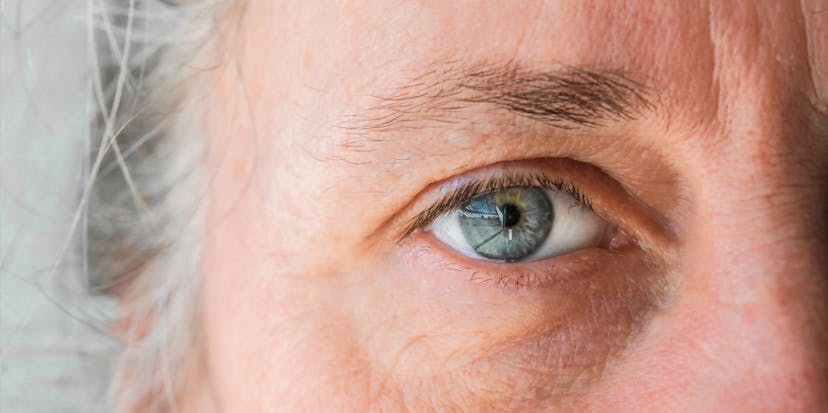
Welcome to World Glaucoma Week, a time of global significance dedicated to shedding light on one of the most prevalent yet often overlooked eye conditions. Here at My-iClinic in London, we are honoured to join the international community in advocating for eye health and raising awareness about glaucoma. This week, we are hosting a series of educational events and free eye screenings at our premises, inviting individuals from all walks of life to learn more about glaucoma and take proactive steps towards preserving their vision. Our team of dedicated eye care professionals is committed to providing personalised care and support to each patient, ensuring that no one faces the challenges of glaucoma alone. Together, let's celebrate World Glaucoma Week by empowering ourselves and our communities to prioritise vision health for a brighter future.
The Importance Of World Glaucoma Week
Raising awareness about glaucoma plays a pivotal role in encouraging early detection and prompt treatment, ultimately safeguarding vision and enhancing quality of life. At My-iClinic, we recognise the critical importance of education in empowering individuals to take proactive steps towards their eye health. By increasing awareness about the signs, symptoms, and risk factors associated with glaucoma, we strive to empower our patients and the wider community to recognise the importance of regular eye examinations. Through educational initiatives, community outreach programs, and digital resources, we aim to arm individuals with the knowledge they need to identify glaucoma in its early stages when interventions can be most effective. By fostering a culture of awareness and proactive care, we endeavour to reduce the burden of glaucoma-related vision loss and improve outcomes for all those affected by this sight-threatening condition.

5 Signs
Glaucoma is often referred to as the "silent thief of sight" because it typically progresses slowly and without noticeable symptoms in its early stages. However, as the condition advances, certain signs may become apparent, signaling the need for prompt evaluation and treatment. Some of the key signs of glaucoma include:
1. Vision Loss
Glaucoma typically affects peripheral vision initially, leading to gradual and often unnoticed vision loss. As the condition progresses, central vision may also be affected, resulting in significant visual impairment if left untreated.
2. Blurred Vision
Individuals with glaucoma may experience blurred or hazy vision, especially in low-light conditions or at night. This symptom can interfere with daily activities such as reading, driving, and navigating unfamiliar surroundings.
3. Halos Around Lights
Glaucoma can cause halos or glare around lights, particularly in patients with advanced disease or during episodes of elevated intraocular pressure. This phenomenon can make it difficult to see clearly and may contribute to visual discomfort.
4. Eye Pain or Discomfort
In some cases, glaucoma may be associated with eye pain, redness, or discomfort. This can occur due to increased intraocular pressure or other underlying factors and should be promptly evaluated by an eye care professional.
5. Elevated Intraocular Pressure
While elevated intraocular pressure (IOP) is a hallmark feature of glaucoma, it may not always cause noticeable symptoms. However, routine eye examinations can detect elevated IOP, which is a key risk factor for developing glaucoma and can prompt further evaluation and management.
If you experience any of the above signs or have concerns about your eye health, it's important to consult an eye care professional for evaluation and appropriate management.

5 Symptoms
Glaucoma is often asymptomatic in its early stages, making regular eye examinations crucial for early detection and treatment. However, as the condition progresses, some individuals may experience symptoms that warrant further evaluation by an eye care professional. Here are some common symptoms associated with glaucoma:
1. Blurred Vision
Gradual or sudden onset of blurred vision, particularly affecting peripheral vision, can be a symptom of advanced glaucoma. This may interfere with activities such as reading, driving, and recognising faces.
2. Patchy Blind Spots
Glaucoma can cause patchy blind spots in the peripheral vision, which may go unnoticed until significant vision loss occurs. These blind spots can gradually expand over time, leading to further visual impairment if left untreated.
3. Severe Eye Pain
Acute angle-closure glaucoma, a less common but more severe form of the condition, can cause sudden and severe eye pain, along with other symptoms such as nausea, vomiting, and seeing halos around lights. This constitutes a medical emergency and requires immediate attention to prevent permanent vision loss.
4. Headaches
Some individuals with glaucoma may experience headaches, particularly around the eyes or forehead. These headaches may be exacerbated by activities that increase intraocular pressure, such as bending over or lifting heavy objects.
5. Tunnel Vision
Advanced glaucoma can lead to tunnel vision, where the field of vision becomes narrowed, leaving only central vision intact. This can significantly impact daily activities and reduce quality of life if not addressed promptly.
Regular comprehensive eye examinations are essential for early detection and treatment. Additionally, certain risk factors, such as age, family history, and underlying medical conditions like diabetes and hypertension, may increase the likelihood of developing glaucoma and warrant closer monitoring by an eye care professional.

5 Risk Factors
Identifying and understanding the risk factors associated with glaucoma is crucial for early detection and prevention. While some risk factors are beyond our control, others can be managed through lifestyle modifications and proactive eye care. Here are some common risk factors for glaucoma:
1. Age
Advancing age is one of the primary risk factors for glaucoma, with the prevalence of the condition increasing significantly after the age of 40. Individuals over the age of 60 are at a higher risk of developing glaucoma, particularly primary open-angle glaucoma (POAG).
2. Family History
A family history of glaucoma significantly increases an individual's risk of developing the condition. If a close relative, such as a parent or sibling, has glaucoma, the likelihood of developing glaucoma is higher. Genetic factors may play a role in the inheritance of certain types of glaucoma.
3. Ethnicity
Certain ethnic groups have a higher predisposition to glaucoma than others. For example, individuals of African descent are at an increased risk of developing primary open-angle glaucoma and may experience more severe forms of the condition at a younger age. Additionally, individuals of Hispanic, Asian, and Native American descent also have an elevated risk of glaucoma.
4. Medical Conditions
Certain medical conditions, such as diabetes, hypertension (high blood pressure), and cardiovascular disease, are associated with an increased risk of developing glaucoma. Additionally, conditions that affect blood flow to the optic nerve, such as migraines and Raynaud's disease, may also contribute to glaucoma risk.
5. Eye Conditions
Certain eye conditions, such as high myopia (nearsightedness), thin central corneal thickness, and previous eye injuries or surgeries, may increase the risk of developing glaucoma. Additionally, individuals with anatomical features such as narrow angles may be at a higher risk of angle-closure glaucoma.
While some risk factors for glaucoma cannot be modified, such as age and family history, others can be managed through proactive eye care and lifestyle modifications. Additionally, maintaining a healthy lifestyle, managing underlying medical conditions, and avoiding tobacco use can help reduce the risk of developing glaucoma and other eye diseases.

Book A Free Screening With My-iClinic
If you're experiencing any signs or symptoms of glaucoma or have concerns about your risk factors, don't wait—schedule a free screening with My-iClinic now. Our experienced team of eye care professionals is here to provide you with comprehensive evaluations and personalised care to safeguard your vision for years to come. Whether you're noticing changes in your vision, have a family history of glaucoma, or simply want peace of mind, our free screenings offer a convenient and proactive way to prioritise your eye health. Don't let glaucoma steal your sight—book your free screening with My-iClinic today and take the first step towards a clearer future!
Find out more by Speaking to our team









